We believe that good research is generative, reflective and collaborative. But how to get started? Below, our network members share practical advice on everything from writing winning grant proposals, to the art of interviewing, and the challenges and opportunities around researching parliaments. Our Fellows, partners, advisors and grantees will also share their own experiences, reflections and tips on how to succeed a a researcher. As the work of the network progresses it is intended that this resource will develop through the creative interaction of academics, artists, activists and practitioners.
Learning from practice paper: how to be better UK partners
Global coalitions tend to be constrained by hierarchies of knowledge and harmful partnership practices. SOAS understands both the ethical imperative for more just partnerships and challenges the false claims about inadequate capacity in the Global South. In our new Strategy SOAS states: ‘There is an urgent need for equitable partnerships globally… If we can develop a new model of partnerships & a business model that sustains it, we could have a dram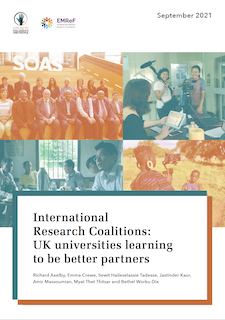 atic national & planetary impact.’ At the Global Research Network on Parliaments and People we have been investing in research organisations the Global South, as one of five Network Plus programmes funded by the Arts and Humanities Research Council and Global Challenges Research Fund since 2017. We teamed up with other universities in the UK and research organisations in Ethiopia and Myanmar to create a grant-making programme – Deepening Democracy – with a £2m grant from the Arts and Humanities Research Programe and the Global Challenges Research Fund. Over 4 years we gave 50 grants to scholars in Bangladesh, Ethiopia, Myanmar and the UK and in the intensely competitive process we created, 46/50 were won by lead scholars in the Global South, 2 by diaspora, and 2 by white Europeans. The results – films, books, policy briefs – are outstanding, described by our colleagues on their grantee pages and accessible via our resources library.
atic national & planetary impact.’ At the Global Research Network on Parliaments and People we have been investing in research organisations the Global South, as one of five Network Plus programmes funded by the Arts and Humanities Research Council and Global Challenges Research Fund since 2017. We teamed up with other universities in the UK and research organisations in Ethiopia and Myanmar to create a grant-making programme – Deepening Democracy – with a £2m grant from the Arts and Humanities Research Programe and the Global Challenges Research Fund. Over 4 years we gave 50 grants to scholars in Bangladesh, Ethiopia, Myanmar and the UK and in the intensely competitive process we created, 46/50 were won by lead scholars in the Global South, 2 by diaspora, and 2 by white Europeans. The results – films, books, policy briefs – are outstanding, described by our colleagues on their grantee pages and accessible via our resources library.
How did this happen? Mainly because if you give funding to scholars in the Global South and tell them they have full control, the incentive to create amazing work is incredibly high. Even in tragically conflict-affected countries. To a lesser extent, the success is partly because SOAS and our partners in Myanmar and Ethiopia worked unbelievably hard at trying to be good partners to each to other and the grantees. Those involved in running the programme have written a learning-from-practice paper about partnership, addressing the question about how to be good partners. The primary audience for this report is academics and professional staff working at UK universities and who are involved with planning or managing large international research collaborations. It could also be of interest to policymakers, grant-makers and governments when making decisions about where to invest resources, how to commission research, and how best to support research capacity development around the world. If anyone claims that Global South scholars lack capacity or respectful global partnerships are impossible, please refer them to our website and this paper on partnership.
Policy Briefing: Submitting Evidence to the UK Parliament
Emma Crewe | SOAS University of London

Getting Published in Academic Journals
Cristina Leston-Bandeira | Leeds University
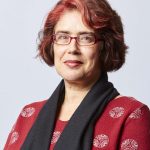 Professor Leston-Bandeira is editor of the journal Parliamentary Affairs and shares her advice and experience on getting published in academic journals. This was originally presented as part of a British Academy Writing Workshop in Ethiopia, convened by SOAS University of London and Mekelle University. Watch the videos on academic publication here and here
Professor Leston-Bandeira is editor of the journal Parliamentary Affairs and shares her advice and experience on getting published in academic journals. This was originally presented as part of a British Academy Writing Workshop in Ethiopia, convened by SOAS University of London and Mekelle University. Watch the videos on academic publication here and here
Research Funding
Alex Lewis | SOAS University of London
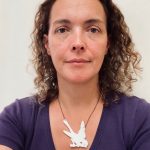 Dr Lewis brings her expertise to bear on the question of research funding. Sources of funding can seem elusive and application processes long and complicated, but Dr Lewis shares strategies that will help anybody seeking to turn their brilliant research idea into a fundable project. Shared initially with our P4P Grant award-holders in Ethiopia, at a British Academy Writing Workshop convened by SOAS University of London and Mekelle University, the presentation will help jump-start your funding search today. View the presentation
Dr Lewis brings her expertise to bear on the question of research funding. Sources of funding can seem elusive and application processes long and complicated, but Dr Lewis shares strategies that will help anybody seeking to turn their brilliant research idea into a fundable project. Shared initially with our P4P Grant award-holders in Ethiopia, at a British Academy Writing Workshop convened by SOAS University of London and Mekelle University, the presentation will help jump-start your funding search today. View the presentation
Strategies for Academic Writing
Kassahun Berhanu | Addis Ababa University
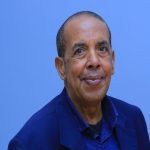 Professor Berhanu distils his decades-long experience on how to write high-quality academic articles. His strategies for success include clear messaging, good structure and organisation, and remembering that the purpose of academic writing is to not just communicate but to open up a dialogue with readers. Shared initially with our P4P Grant award-holders in Ethiopia, at a British Academy Writing Workshop convened by SOAS University of London and Mekelle University, the presentation offers key insights and strategies for anybody interested in writing for academic audiences. View the presentation
Professor Berhanu distils his decades-long experience on how to write high-quality academic articles. His strategies for success include clear messaging, good structure and organisation, and remembering that the purpose of academic writing is to not just communicate but to open up a dialogue with readers. Shared initially with our P4P Grant award-holders in Ethiopia, at a British Academy Writing Workshop convened by SOAS University of London and Mekelle University, the presentation offers key insights and strategies for anybody interested in writing for academic audiences. View the presentation
Writing for Academic Audiences
Chris Mowles | University of Hertfordshire
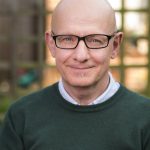 Professor Mowles introduces the concepts, principles and practices of writing academically. Shared initially with our P4P Grant award-holders in Ethiopia, at a British Academy Writing Workshop convened by SOAS University of London and Mekelle University, the presentation unpacks what it means to become – and be – part of what Mowles calls a ‘community of enquiry’ and offers helpful tips on structuring academic articles. View the presentation
Professor Mowles introduces the concepts, principles and practices of writing academically. Shared initially with our P4P Grant award-holders in Ethiopia, at a British Academy Writing Workshop convened by SOAS University of London and Mekelle University, the presentation unpacks what it means to become – and be – part of what Mowles calls a ‘community of enquiry’ and offers helpful tips on structuring academic articles. View the presentation
Writing Grant Applications
Emma Crewe | SOAS University of London
 Emma offers ideas about how to write a good funding application. We have been supporting scholars in Myanmar and Ethiopia by awarded grants for research on parliaments. As our funding has been disbursed, we are keen to offer advice about seeking funds from other grant-makers. Here are some tips about writing a decent grant application based on our experience of both applying for and awarding funding. View the article
Emma offers ideas about how to write a good funding application. We have been supporting scholars in Myanmar and Ethiopia by awarded grants for research on parliaments. As our funding has been disbursed, we are keen to offer advice about seeking funds from other grant-makers. Here are some tips about writing a decent grant application based on our experience of both applying for and awarding funding. View the article
International Networks for Research on Parliaments
Cristina Leston-Bandeira | University of Leeds
 Professor Leston-Bandeira offers invaluable information about scholarly networks, journals, organisations and data on parliaments. Whilst parliaments have been the focus of very considerable research in some countries for decades, such as in the United States, this is still a relatively under-developed research area within politics. Many reasons explain this, but the main one is related to access to information and data. View the article
Professor Leston-Bandeira offers invaluable information about scholarly networks, journals, organisations and data on parliaments. Whilst parliaments have been the focus of very considerable research in some countries for decades, such as in the United States, this is still a relatively under-developed research area within politics. Many reasons explain this, but the main one is related to access to information and data. View the article
The Art of Interviewing
Emma Crewe | SOAS University of London
 Emma offers some ideas about how to interview people working in politics. Studying politicians presents specific amplified challenges for researchers – even more than most people they are short of time, under pressure to paint themselves in glowing colours and keeping all kinds of secrets. Shadowing them or participating in their work is often difficult so many researchers have to depend on interviewing. View the article
Emma offers some ideas about how to interview people working in politics. Studying politicians presents specific amplified challenges for researchers – even more than most people they are short of time, under pressure to paint themselves in glowing colours and keeping all kinds of secrets. Shadowing them or participating in their work is often difficult so many researchers have to depend on interviewing. View the article
